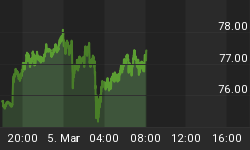Inquiring minds note a huge shift in consumer attitudes towards credit cards. Please consider Cash is king for holiday shoppers.
Cash was king for consumers who shopped over the Thanksgiving weekend, according to survey results released on Sunday, and that factor could have cost retailers additional sales.
Only 26 percent of people who shopped over the weekend said they used credit cards for their purchases, according to a poll conducted for Reuters by America's Research Group.
"That's an amazing shift in consumers' habits," said Britt Beemer, founder of America's Research Group.
A total of 39 percent said they used cash, while the remaining shoppers used debit cards, the survey showed.
Consumers shunning credit cards is a bad sign for retailers, since people who buy gifts with a credit card tend to spend anywhere from 20 to 40 percent more on the gift, Beemer said.
Every Retailer Wants To Be A Discounter
The National Retail Federation has this Black Friday Verdict: Number of Shoppers Up, Average Spending Down.
As the closely-watched Black Friday weekend winds down, a National Retail Federation survey conducted over the weekend confirms the expected: more people spent less. According to NRF's Black Friday shopping survey, conducted by BIGresearch, 195 million shoppers visited stores and websites over Black Friday weekend*, up from 172 million last year. However, the average spending over the weekend dropped to $343.31 per person from $372.57 a year ago. Total spending reached an estimated $41.2 billion.
Shoppers' destination of choice over the past weekend seemed to be department stores, with nearly half (49.4%) of holiday shoppers visiting at least one, a 12.9 percent increase from last year. Discount retailers took an uncharacteristic back seat, with 43.2 percent of holiday shoppers heading to discount stores over the weekend and another 7.8 percent heading to outlet stores.** Shoppers also visited electronics stores (29.0%), clothing stores (22.9%), and grocery stores (19.6%). As millions of shoppers gear up for Cyber Monday, one-fourth of Americans shopping over the weekend (28.5%) were shopping online.
"In an economy like this one, every retailer wants to be a discounter," said Tracy Mullin, NRF President and CEO. "Department stores have done an admirable job touting both low prices and good quality, which are important requirements for holiday shoppers on a budget."
Changing Attitudes Towards Debt
That shift away from Credit Cards usage comes from several primary sources:
1) consumers shunning credit cards over higher interest rates
2) Job losses
3) Boomers headed into retirement scared half to death about a lack of savings
4) Banks curtailing credit and lowering card limits in response to rising defaults
Those four points represent changing consumer attitudes towards debt and borrowing, and banks' attitudes to credit and landing. Changing attitudes is the key idea.
Now, after the shift is well underway .....
Self-Serving Fed Infomercials
True to form with regulators, they are always too little too late. In an effort to boost its sagging image, you can look forward to Fed Infomercials, playing soon at movie theaters near you.
5 Tips for Getting the Most from Getting the Most from Your Credit Card
1. Pay on Time
2. Stay below your credit limit
3. Avoid unnecessary fees
4. Pay more than the minimum amount
5. Watch for Changes in your account
The Fed is on a publicity campaign to boost its image.
"Get Information You Can Trust"

The above clip is at the end of the Fed's infomercial on credit card usage.
If you think the Fed is concerned about you, you are sadly mistaken. Although, the Fed is concerned about excessive credit card defaults, that concern is for the banks, not for you.
Moreover, credit card tips is not the real message of the Fed's infomercial. The no-so-hidden message "Get Information You Can Trust" (from the Fed) is what the Fed really wants to get across.
One thing you can trust is that any infomercial from the Fed will be self-serving propaganda.
I repeat what I said in Ben Bernanke Pleads For His Job; My Response to Bernanke
Bernanke: The Fed played a major part in arresting the crisis, and we should be seeking to preserve, not degrade, the institution's ability to foster financial stability and to promote economic recovery without inflation.
Mish: Ben, you sound like an arsonist taking credit for helping put out a fire, before the fire is even out, after you lit the match and tossed on the gas in the first place. For all the problems you have caused, don't you at least have the decency to show a little humility?















